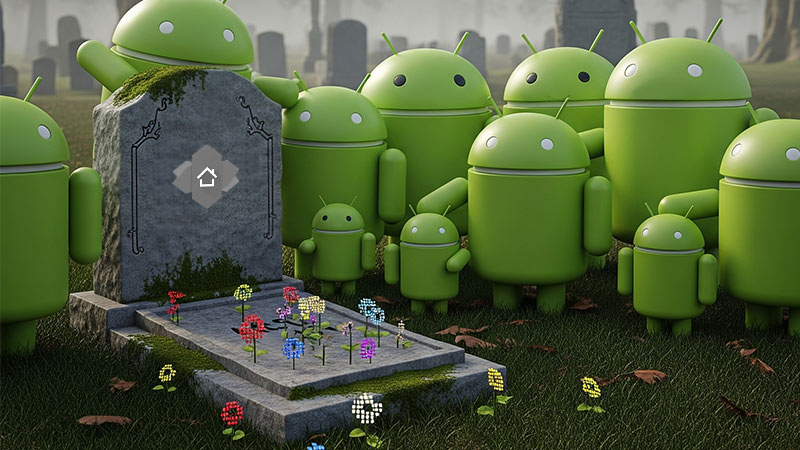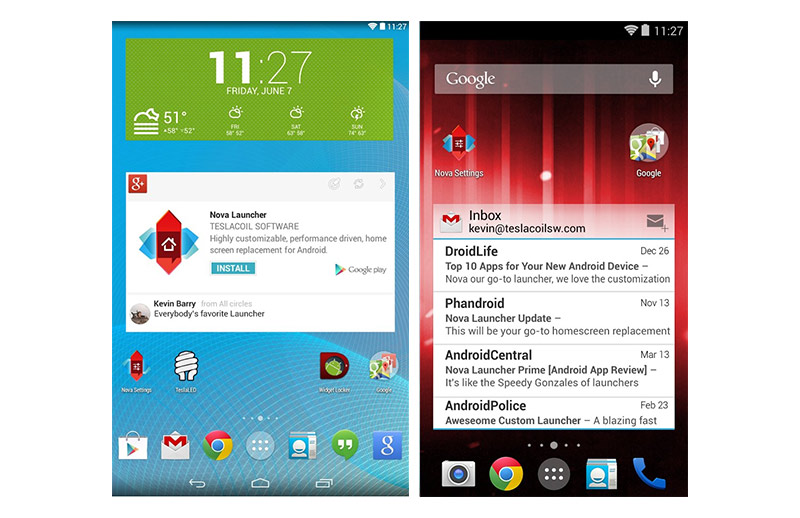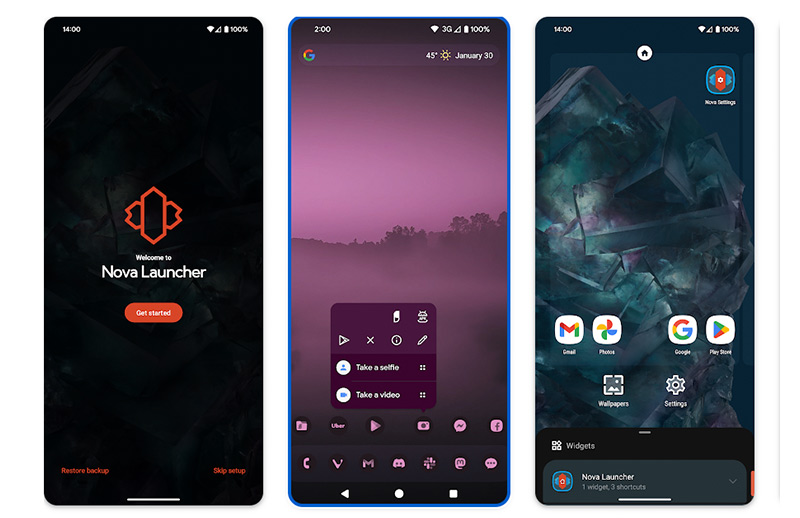
For years, Nova Launcher has been a pillar of the Android customization world, shaping the way users could control and personalize their devices.
It wasn’t just another app. in fact, Nova Launcher was considered by many as a symbol of what made Android different from Apple's iOS. It helped defined Android as a playground where freedom of choice, flexibility, and personalization defined the experience.
Since its debut in 2011, Nova became the go-to solution for millions of users who wanted their phone to look, feel, and perform exactly the way they envisioned.
Whether it was tweaking grid sizes, adjusting folder layouts, creating gesture shortcuts, or experimenting with scrolling animations, Nova Launcher gave Android users the kind of granular control that no stock launcher dared to offer. It was an app that elevated smartphones from being locked-down tools into personal canvases. But now, Nova Launcher’s story has reached a bitter turning point, leaving its loyal community heartbroken.
The sad reality is that Nova Launcher is no longer under development. Kevin Barry, the founder and original developer who single-handedly crafted its legacy, has officially walked away from the project.
Nova Launcher was first released in December 2011 by Barry, who built the app primarily for Android 4.0 Ice Cream Sandwich, which had just launched a few months earlier in October 2011. That version of Android introduced a more modern UI design called Holo, and Nova was one of the very first launchers to really take advantage of it.
As for devices, it initially targeted the Samsung Galaxy Nexus (released November 2011), which was Google’s flagship phone to debut Android 4.0.
Nova quickly spread to other ICS-compatible phones soon after, and from there, it became the gold standard for customization.
Nova had a promising growth, but its death bed had been set for quite some time.
It all began when Branch acquired Nova in 2022, but instead of enthusiasm, the acquisition sparked skepticism. Many users questioned why a mobile analytics firm would want to own a home screen replacement app. While Branch claimed the acquisition would lead to new experimental features powered by data insights, the reality was less inspiring.
Barry left the company after being asked by Branch to stop working not only on the launcher itself but also on his plans to make it open source.
This effectively seals Nova’s demise.

Barry had been preparing for months to transition Nova into an open-source project, carefully cleaning the code, reviewing licenses, and working with legal experts to ensure a smooth release. That work, however, has been abruptly halted.
By 2024, Branch laid off over a hundred employees, leaving Barry as the sole developer.
Updates slowed to a crawl, with the last meaningful release arriving in May 2024 when Nova 8 rolled out, offering support for Material You theming, improved gestures, and smarter search tools. It was a solid update, but ultimately too little, too late.
With newer launchers like Niagara, Smart Launcher, Kvaesitso, and Lawnchair pushing fresh design philosophies and modern integrations, Nova began to feel more like a relic of the past than the leader of Android customization it once was.
In his farewell note, Barry expressed gratitude to the community that supported Nova for over a decade, acknowledging the passion, feedback, and dedication that helped the launcher thrive. But gratitude aside, his exit makes one thing clear: Nova as fans knew, is now dead.
For the Android community, the announcement still feels like a gut punch.
Reddit threads are now filled with tributes to Nova, with users calling it "legendary" and praising it as one of the most important apps in Android history. Many credit Nova with shaping the way they’ve interacted with their devices over the years. Some have even shared emotional anecdotes, recalling how Nova accompanied them from their very first Android phones to their most recent flagships.
The real tragedy isn’t just that development has stopped. It’s that the possibility of Nova’s rebirth through open sourcing seems unlikely.
Branch had previously promised that if Barry ever left, the code would be handed over to the community. With Barry now gone, that promise has yet to be honored, and those close to the project doubt it will be.

For longtime Android fans, Nova Launcher’s demise is more than the end of an app. To them, it's kind of like the end of an era.
Back in the early days of Android, customization wasn’t just a feature; it was the soul of the platform. Swapping launchers, adding widgets, and reshaping the interface felt rebellious compared to Apple’s locked-down ecosystem. Nova embodied that spirit better than anyone, giving users the freedom to bend their devices to their will.
Over the years, manufacturers borrowed ideas, adding flexibility to their own skins. Yet none quite captured Nova’s precision and polish. Today, the Android landscape is shifting, with manufacturers prioritizing security, ecosystems, and AI-driven experiences over freedom. Nova’s silence feels like a symbol of this transition.
Even so, Nova Launcher’s place in history is secure. It was never just another utility. The app's existence was a movement, a cornerstone of Android’s identity, and a gateway for countless users into the world of personalization.
While it may no longer evolve, its influence can still be felt across the ecosystem and within the new generation of launchers that took inspiration from it.
